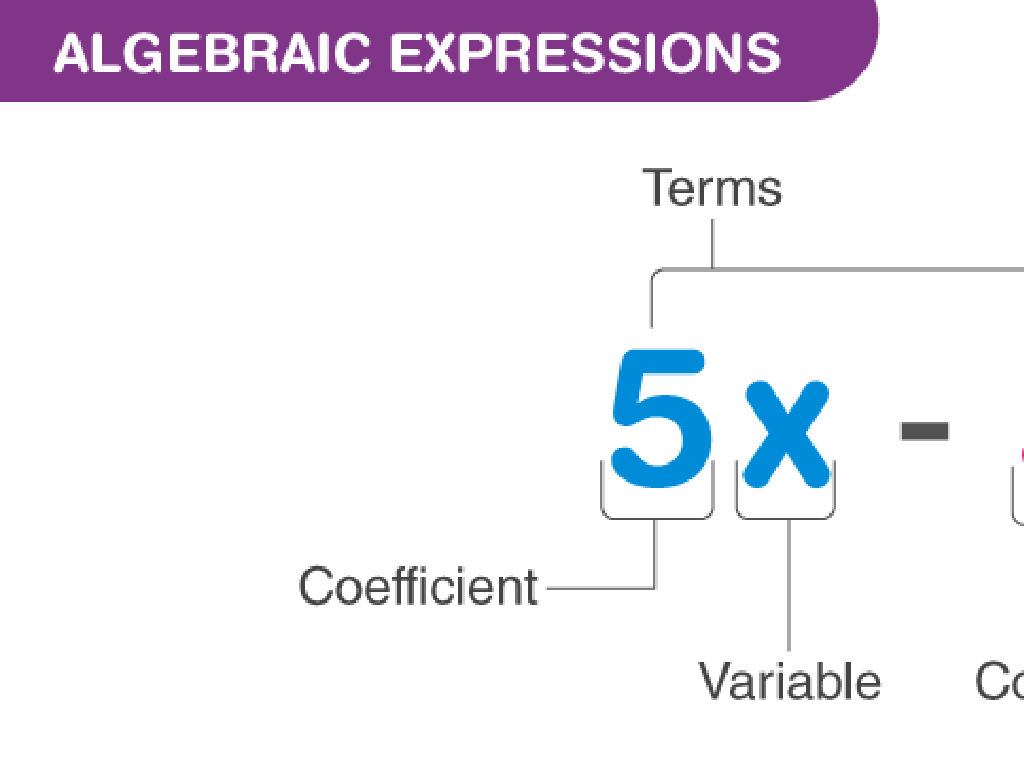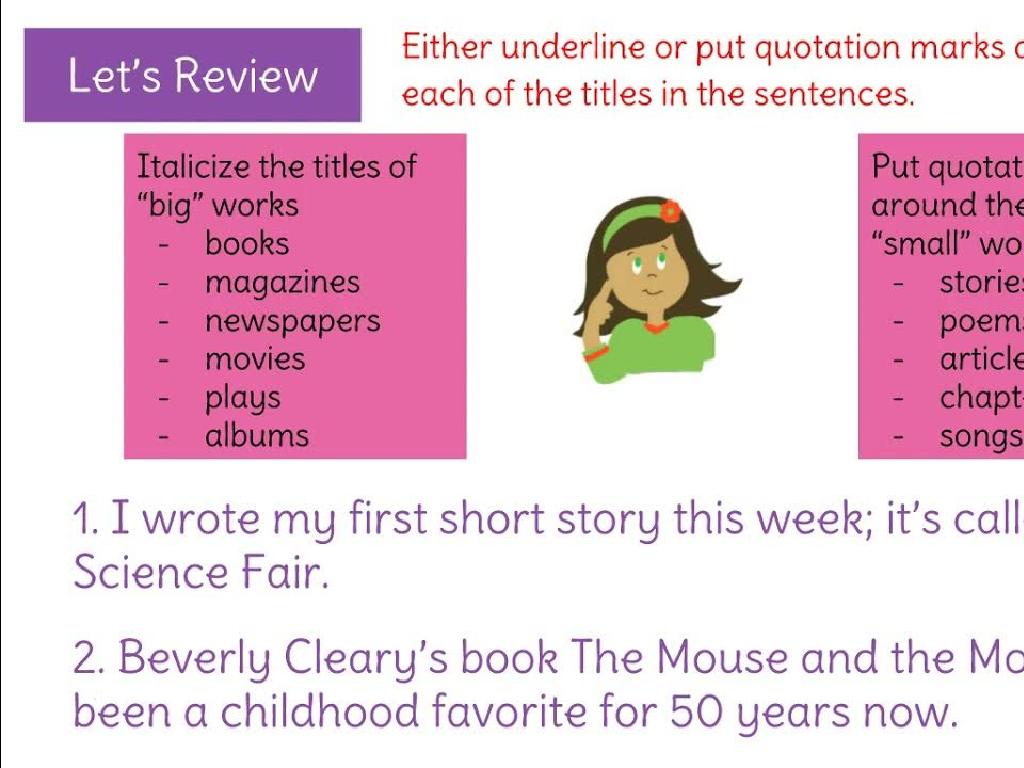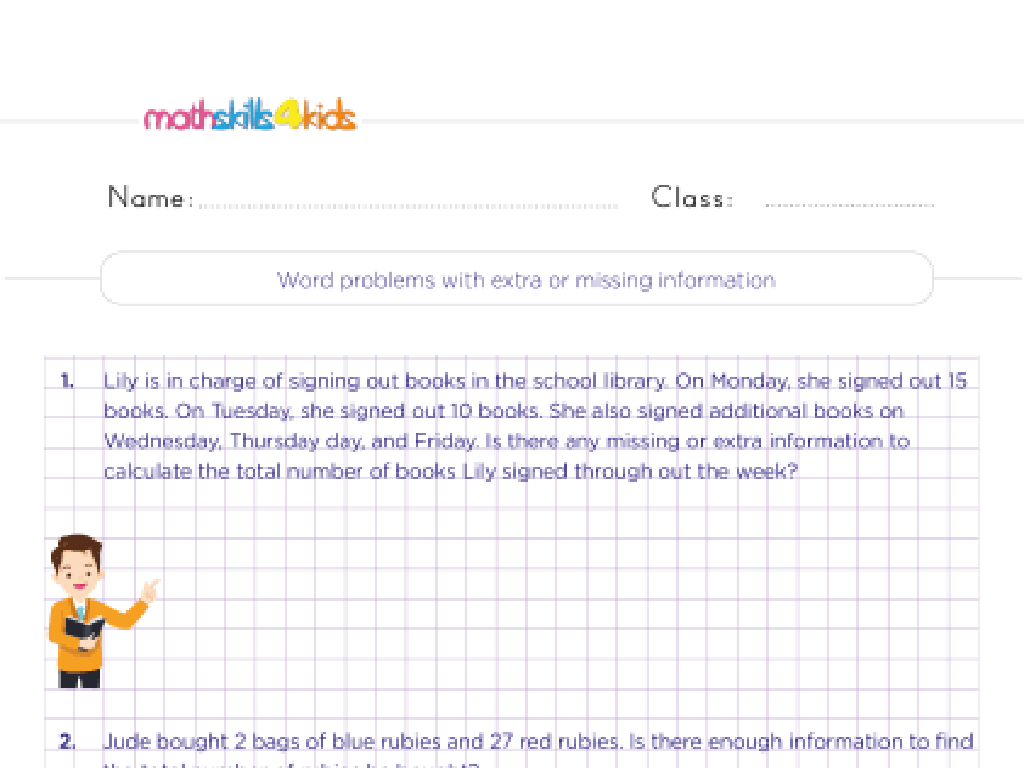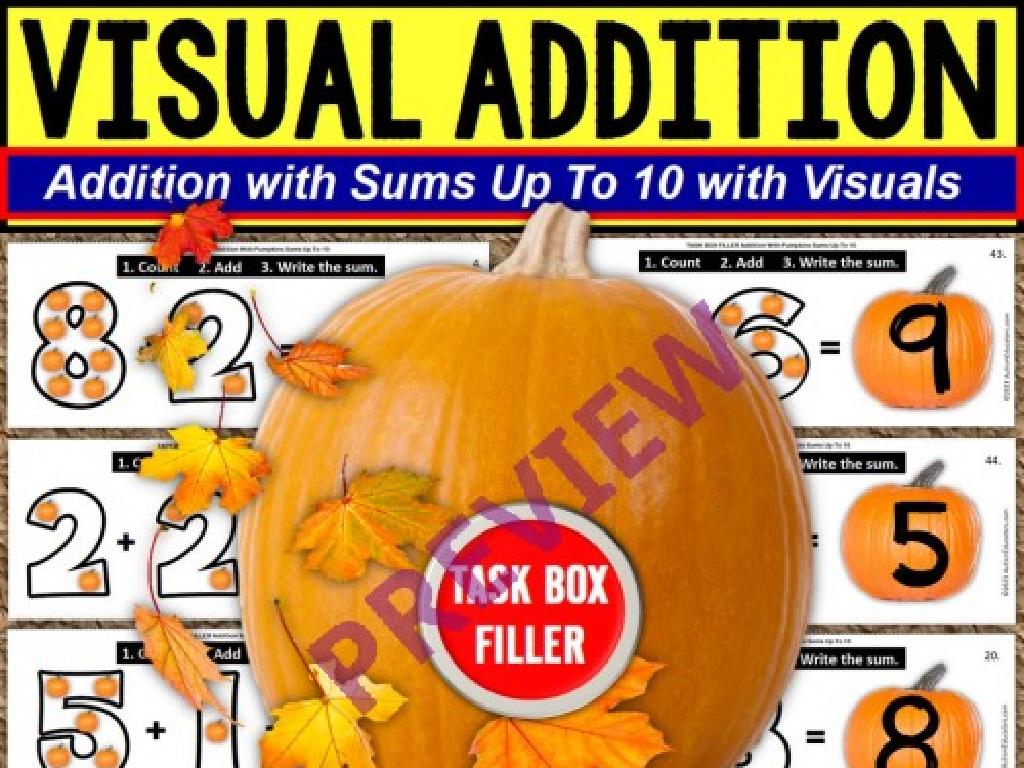Occupations, Education, And Income
Subject: Math
Grade: Sixth grade
Topic: Financial Literacy
Please LOG IN to download the presentation. Access is available to registered users only.
View More Content
Introduction to Financial Literacy
– What is Financial Literacy?
– Understanding money management and financial decisions
– Importance of Money Knowledge
– Learning about money helps with future independence and security
– Connection: Jobs, Learning & Earnings
– How education level can influence job options and salary
– Exploring Occupations & Income
– We’ll look at different jobs and what they might pay
|
This slide introduces students to the concept of financial literacy, emphasizing its importance in everyday life. Financial literacy is the ability to understand and make informed and effective decisions about money. It’s crucial for students to learn about money management early on to ensure future financial stability and independence. Today’s topic will explore the relationship between different occupations, the education required for those jobs, and the potential income one can earn. This will help students to see the value of education in securing a well-paying job and to start thinking about their own career aspirations and financial goals. Encourage students to think about various professions and what they might like to pursue in the future.
Exploring Occupations and Financial Literacy
– What is an occupation?
– An occupation is a job or profession.
– Types of occupations
– Examples: Teacher, Engineer, Artist, Doctor
– Occupation’s impact on finances
– Different jobs help us understand how money is earned.
– Understanding income variations
– Different jobs have different pay scales.
|
This slide introduces the concept of occupations and their significance in financial literacy. Begin by defining an occupation as a job or profession that a person engages in to earn money. Provide a variety of examples to illustrate the range of occupations available. Discuss how understanding different occupations helps us comprehend the flow of money and the basics of earning an income. Highlight that different occupations have varying levels of education requirements and consequently, different income potentials. This will set the stage for discussing how education can impact one’s career choice and income level. Encourage students to think about the occupations of people they know and how these jobs contribute to their financial stability.
Education’s Impact on Career Paths
– Education’s role in occupation choice
– Higher education often leads to a wider range of job opportunities.
– Education levels and career options
– High School diploma, Bachelor’s, Master’s, or Doctorate affect career paths.
– Investing in education
– Spending time and money on education can lead to higher income jobs.
– Long-term benefits of education
– Education can lead to better job security and personal growth opportunities.
|
This slide aims to explain to students how different levels of education can influence their future job options and income potential. It’s important to discuss that while higher education can lead to more career choices and higher income, it is also an investment of time and resources. Encourage students to think about their interests and how they align with educational paths. Discuss the concept of ‘investing in education’ as a way to improve skills and knowledge for future benefits. Highlight that education is not just about immediate job prospects but also about long-term career development and satisfaction.
Income and Occupations: Financial Literacy
– Understanding Income
– Income is the money earned from work or investments.
– Occupations’ Impact on Income
– Different jobs pay differently; some have higher salaries.
– Education’s Role in Income
– Generally, more education can lead to higher-paying jobs.
– Exploring Income Potential
– We’ll look at how education level can affect your future income.
|
This slide introduces students to the concept of income and its correlation with different occupations and education levels. Begin by defining income as money received on a regular basis for work or through investments. Discuss how various occupations have different income levels, often influenced by factors such as skill, demand, and education required. Highlight the general trend that higher education can increase earning potential, but also note exceptions and the importance of choosing a career path that aligns with personal interests and skills. Encourage students to think about their future and how their educational choices might impact their potential income. Provide examples of different occupations with varying income levels to illustrate these points.
Budgeting Basics
– Understanding a budget
– A plan for spending and saving money based on income.
– Key components of a budget
– Includes income, expenses, savings, and goals.
– Income’s role in budgeting
– More income means a larger budget; balance needs and wants.
– Practical budgeting exercise
|
This slide introduces students to the concept of budgeting, an essential skill for financial literacy. A budget is a financial plan that helps individuals manage their money by balancing their income with their expenses and savings. It’s important to explain that a budget is not just about restricting spending but also about making informed choices to achieve financial goals. Discuss the basic components of a budget, emphasizing the importance of tracking income and expenses. Highlight how income levels can affect budgeting decisions and the ability to save. Conclude with a practical exercise where students create a simple budget based on hypothetical or their own pocket money, to reinforce the concepts learned.
Occupations, Education, and Income
– Compare incomes across occupations
– Look at a doctor vs. a teacher’s salary
– Education’s impact on earnings
– Higher education can lead to higher pay
– Real-life income examples
– For instance, a college graduate vs. a high school graduate
– Discuss our observations
|
This slide aims to explore the relationship between different occupations, levels of education, and the resulting income. Start with a case study comparing the incomes of various professions, such as a doctor versus a teacher, to illustrate the potential earnings gap. Highlight how education can affect income by showing real-life examples, such as the difference in average income between a college graduate and a high school graduate. Encourage students to engage in a group discussion to reflect on the findings and share their thoughts on how education might influence their future career choices and earning potential. The discussion will help students understand the value of education in financial terms and motivate them to think about their own educational and professional goals.
Class Activity: Envisioning Your Future Career
– Imagine your dream job
– Investigate required education
– What degree or training is needed?
– Estimate potential earnings
– Look up average salaries for the job
– Draft a basic budget plan
– Consider expenses like housing, food, and savings
|
This activity encourages students to explore the relationship between education, occupation, and income. Students will use their imagination to pick a future job and research the necessary education and potential income. They will then apply math skills to create a simple budget based on their estimated income. For the teacher: Provide resources for researching occupations, guide students on how to look up income data, and assist them in understanding budgeting basics. Offer examples of budgets for different income levels. Allow students to present their findings to the class to foster public speaking skills and share diverse career aspirations.
Conclusion: Occupations, Education, and Income
– Recap: Occupations and Income
– Different jobs pay differently, education level can affect income
– Education’s impact on earnings
– Generally, more education can lead to higher paying jobs
– Financial planning significance
– Planning finances helps manage money and achieve goals
– Q&A session
|
As we conclude today’s lesson on financial literacy, let’s recap the key points we’ve discussed. We’ve learned how different occupations have varying income levels and how education can significantly impact your earning potential. Understanding this helps us recognize the importance of financial planning for our future. Now, let’s open the floor for any questions you might have. This is your opportunity to ask about anything from today’s lesson that you might want clarification on or further explanation. Remember, no question is too small, and it’s always better to ask if you’re unsure about something.






